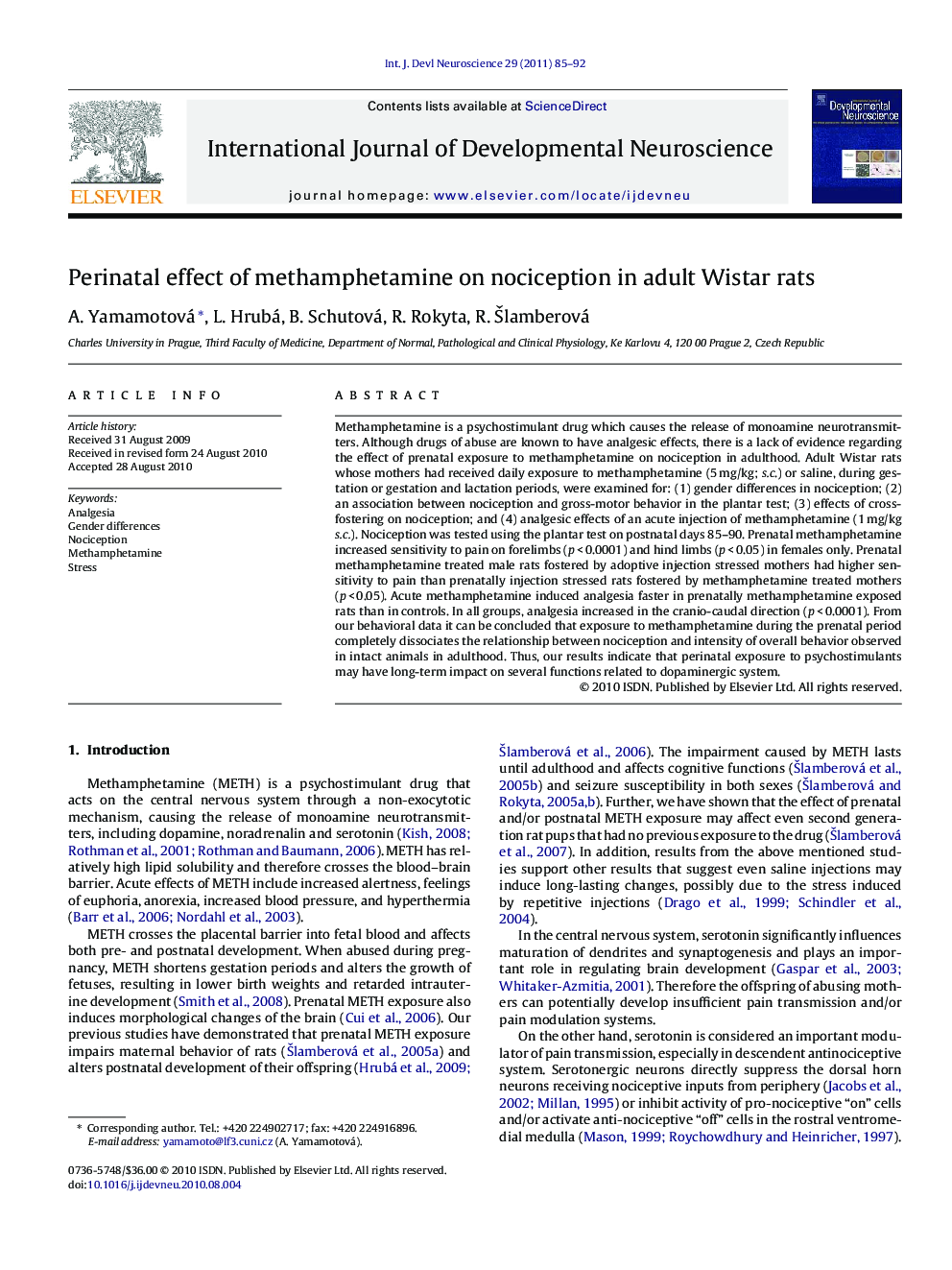| Article ID | Journal | Published Year | Pages | File Type |
|---|---|---|---|---|
| 5893997 | International Journal of Developmental Neuroscience | 2011 | 8 Pages |
Methamphetamine is a psychostimulant drug which causes the release of monoamine neurotransmitters. Although drugs of abuse are known to have analgesic effects, there is a lack of evidence regarding the effect of prenatal exposure to methamphetamine on nociception in adulthood. Adult Wistar rats whose mothers had received daily exposure to methamphetamine (5 mg/kg; s.c.) or saline, during gestation or gestation and lactation periods, were examined for: (1) gender differences in nociception; (2) an association between nociception and gross-motor behavior in the plantar test; (3) effects of cross-fostering on nociception; and (4) analgesic effects of an acute injection of methamphetamine (1 mg/kg s.c.). Nociception was tested using the plantar test on postnatal days 85-90. Prenatal methamphetamine increased sensitivity to pain on forelimbs (p < 0.0001) and hind limbs (p < 0.05) in females only. Prenatal methamphetamine treated male rats fostered by adoptive injection stressed mothers had higher sensitivity to pain than prenatally injection stressed rats fostered by methamphetamine treated mothers (p < 0.05). Acute methamphetamine induced analgesia faster in prenatally methamphetamine exposed rats than in controls. In all groups, analgesia increased in the cranio-caudal direction (p < 0.0001). From our behavioral data it can be concluded that exposure to methamphetamine during the prenatal period completely dissociates the relationship between nociception and intensity of overall behavior observed in intact animals in adulthood. Thus, our results indicate that perinatal exposure to psychostimulants may have long-term impact on several functions related to dopaminergic system.
Research highlightsⶠFemale rats prenatally exposed to METH have increased nociceptive sensitivity in their adulthood. ⶠAdult male rats prenatally exposed to METH developed METH analgesia faster than control rats. ⶠMETH-induced analgesia increased in the cranio-caudal direction. ⶠPrenatal METH dissociates the relationship between nociception and gross-motor behavior.
